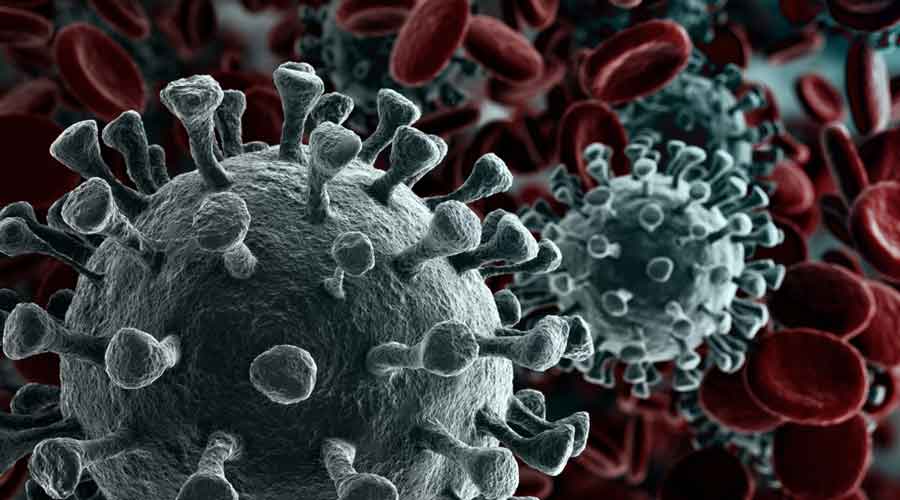Maharashtra health authorities on Wednesday said they may have found the new XE coronavirus variant, described as 10 per cent more transmissible than the currently dominant BA.2 strain, but a central genome network said the detected variant was not XE.
The contradictory claims might be a result of inadvertent interpretative errors that may occur while assigning lineages to a specific variant, according to experts, who say there is still uncertainty over whether XE has emerged in India.
But available data on XE — a recombinant virus with sequences from two omicron versions called BA.1 and BA.2 — from other countries and current epidemic patterns in India do not warrant any worry, they said.
Maharashtra’s public health department said it had found a “probable” XE variant in a 50-year-old South African woman who had arrived in India on February 10 and was found Covid-positive on February 27.
“Initial sequencing” at the Kasturba Hospital, Mumbai, has indicated XE, but the central government’s Indian National SARS-CoV-2 Genomics Consortium (Insacog) will sequence the variant again for confirmation, the department said.
The woman was “totally asymptomatic” and was found negative on repeat testing, it said.
The Union health ministry shared a statement from Insacog, the national genomic surveillance network, that said: “FastQ files in respect of the sample which is said to be XE variant were analysed in detail by genomic experts of Insacog who have inferred that the genomic constitution of this variant does not correlate with the genomic picture of XE variant.”
A FastQ is a text file containing sequences read out by the sequencing machines. An expert said the process of assigning lineages based on read-out sequences depended on software pipelines and could involve interpretative errors.
The XE variant has been detected in the UK, Thailand and some other countries. Preliminary reports have suggested that XE is 10 per cent more transmissible than the BA.2 variant, which accounts for over 95 per cent of the sequenced samples in India.
Experts have said the issues that matter from a public health perspective are whether XE has a survival advantage over BA.2 and whether the variant can change patterns of the epidemic or the disease.
“We need to watch what is happening on the ground,” said Rajesh Karyakarte, a senior microbiologist at the B.J. Medical College, Pune. Karyakarte had discovered the delta variant in mid-February 2021 in samples received from a Maharashtra district where health authorities had observed unusually high local transmission rates.
“If there is no change in the epidemic’s pattern and no change in disease severity, there isn’t anything to worry about — whether XE is here or not,” he said.
“Our genomic studies throughout the pandemic have shown that once a wave caused by a variant of concern such as delta or BA.2 has ebbed, it takes a new variant with more fitness, one that has immune escape mutations and higher transmission rates, to cause a rise in the number of cases,” Karyakarte told The Telegraph.
“So we need to keep a close watch on any increase in positivity or the hospital admission rates and respond by accelerated sequencing in those areas.”
Another expert who requested not to be named said that even if the variant were XE, there had been no increase in cases in Mumbai over the past month. “This would suggest that whatever it is, it hasn’t impacted the course of the epidemic.”
Health experts believe that India’s high vaccination coverage — more than 84 per cent of adults are now fully vaccinated — and the large proportion of people infected over the past two years will protect people from severe disease and death from Covid-19 unless the virus changes dramatically.
Jacob John, a community medicine specialist at the Christian Medical College, Vellore, said that exposure to each new variant would likely only serve as “natural boosters” to people who already have immune responses against Covid-19.











